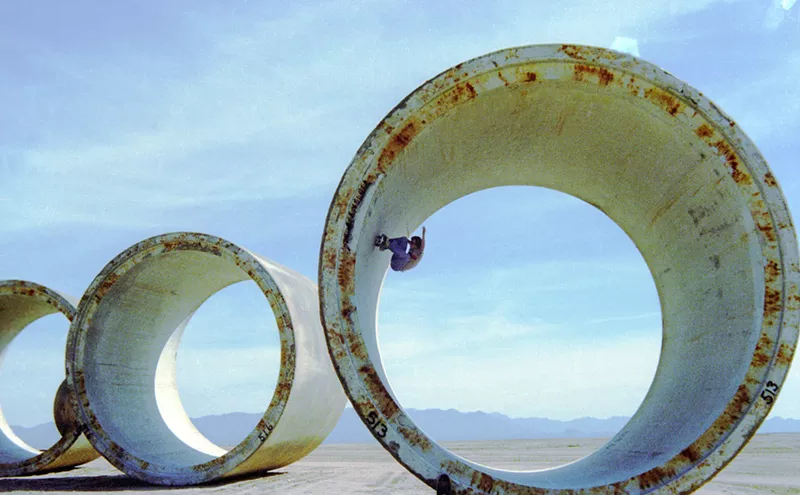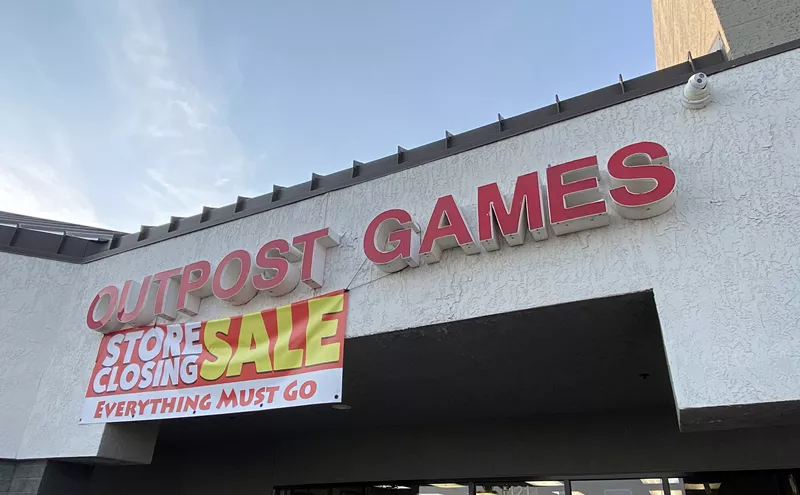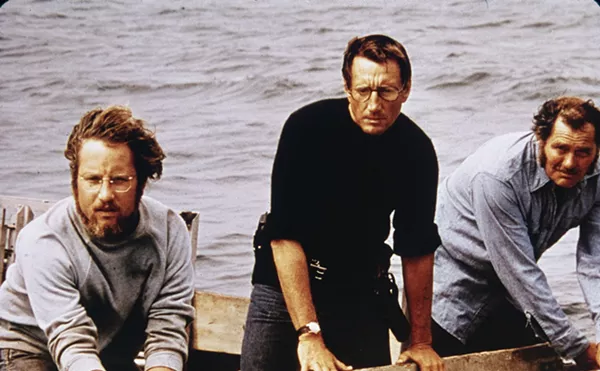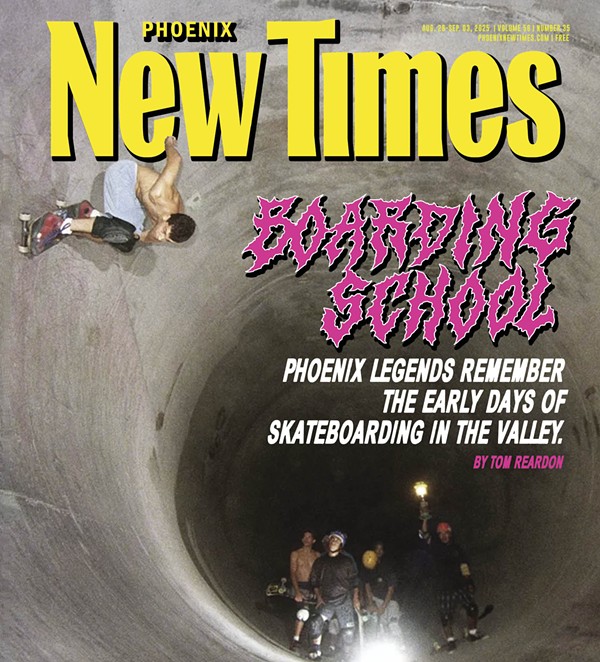"It's a medley of commercial jingles that Barry Manilow wrote before he was famous," my sister hollers between verses from a State Farm ad. "Barry recorded it on his live album, and the kids and I sometimes perform it for the neighbors in our basement."
I try to tell my sister that although I think Barry is extremely unhip and his music very uncool, I can't help but like him. "He's sort of the '70s Sinatra," I shout above the din, but she just smiles and nods. She can't hear me; she's singing a Band-Aid commercial.
Thirty years later, Sis and I are driving to Phoenix Greyhound Park, where we're both looking forward to seeing Copperstate Dinner Theatre's production of Somewhere in the Night: The Barry Manilow Songbook, and I'm telling her about how the day before, Peter Hill, the director of the show, had e-mailed asking me not to review the performance.
"So does he think you're going to review the show?"
"Who cares?" I tell her. "He's not the boss of me."
"You know," my sister says, "That's exactly what you used to say to me when you were 4 and I had to try to get you to go to bed."
At the dog track, we both order the prime rib, which is delicious; served with some very nice steamed vegetables and new potatoes prepared exactly as I like them, with butter and salt and the skins still on. After dinner, we watch the Manilow show, in which four men and three women sing a whopping 25 of Barry's biggest hits. Everyone gets a solo, and there are a couple of duets, but most of the songs are sung as ensemble numbers. I try to catch my sister's eye during the show, but fail.
As we're leaving, Peter Hill corners me. "I thought we had an agreement that you weren't going to review this show."
"What's your problem?" I ask him.
"This isn't our best work," he says, pointing to the now-empty stage. "There are a lot of things wrong with this show."
"Well," I tell Hill, "I wouldn't go around telling people that. Especially not theater critics!"
On the drive back to my place, my sister and I talk about Barry Manilow's lasting appeal, and why he's survived all kinds of musical trends, never really fading from popularity.
"It's because he writes catchy stuff that young people can like, but he's also sort of like Cole Porter," she says. "Most of his stuff sounds like show tunes, so it makes sense someone would put together a revue like this one. Speaking of which, what did that Peter guy say to you?"
"He's still trying to convince me not to review the show," I say. "He's decided I'll write nasty things about it, because he doesn't seem to think it's very good."
"Well, he's right about that," Sis says. "It was awful."
I tell her that I'm surprised that she feels that way. I agree that there were some rough spots in the show, and that the singers weren't always on key, but that considering we'd just seen a nonprofessional dinner theater production of a Barry Manilow revue staged at a dog track, I didn't think the show was really all that bad. It had the right combination, I tell her, of sincerity and naiveté, which gave the performance a cozy feeling, like you were watching a group of friends perform a Barry tribute in your basement.
After I talk some more about what else I liked about the production -- its enthusiasm; its pacing; the way the cast joked among themselves during the ensemble numbers -- my sister is quiet. She's probably thinking about how cool it is that her baby brother has grown up to have all these sophisticated opinions about blocking and lighting design and the performing arts, I think to myself. Finally, my sister speaks.
"Are you high?" she says.
The show, she tells me, was dreadful. The singing was flat and off-key; the performers stiff and clearly embarrassed to be playing to a mostly empty house at a dog track. The prerecorded music sounded, she says, like a fourth-rate karaoke tape, and the bridesmaid dresses the gals wore in the second act made her want to go wait in the car until the show was over.
"And don't get me started about the choreography," she finishes.
I tell her that I thought the choreography was fine, and that maybe she's confusing the cast's limited dancing skills with the choreography itself. I point out that revues typically present a songwriter's work without the flashy spectacle found in a traditional book musical, and that choreographer Noel Irick's simple dance steps were appropriate for an intimate, cabaret-type performance like this one.
"You know, you can play theater critic all you want," Sis tells me. "But I know a big steaming pile of crap when I smell one. And I have a feeling I'm going to be smelling this one for about a week."
"You have to admit that it was kind of cute how they swapped out names that sounded like Mandy during the 'Mandy' number," I try.
"They kiped that from Barry's six-CD box set," my sister moans. "And what was with all those numbers that ended with the singers slowly raising one outstretched arm toward the sky at the end of the song? Nobody does that any more!"
I try to explain cabaret style to her, but she's not really listening; her eyes are closed and she's humming the chorus of "Copacabana." She stays this way until we pull up in front of my house, when she rouses herself and says to me, "Thanks for tonight. The dinner was really good."
She leans over and kisses me on the cheek. "And the next time the director of a show asks you not to review it, listen to him."









